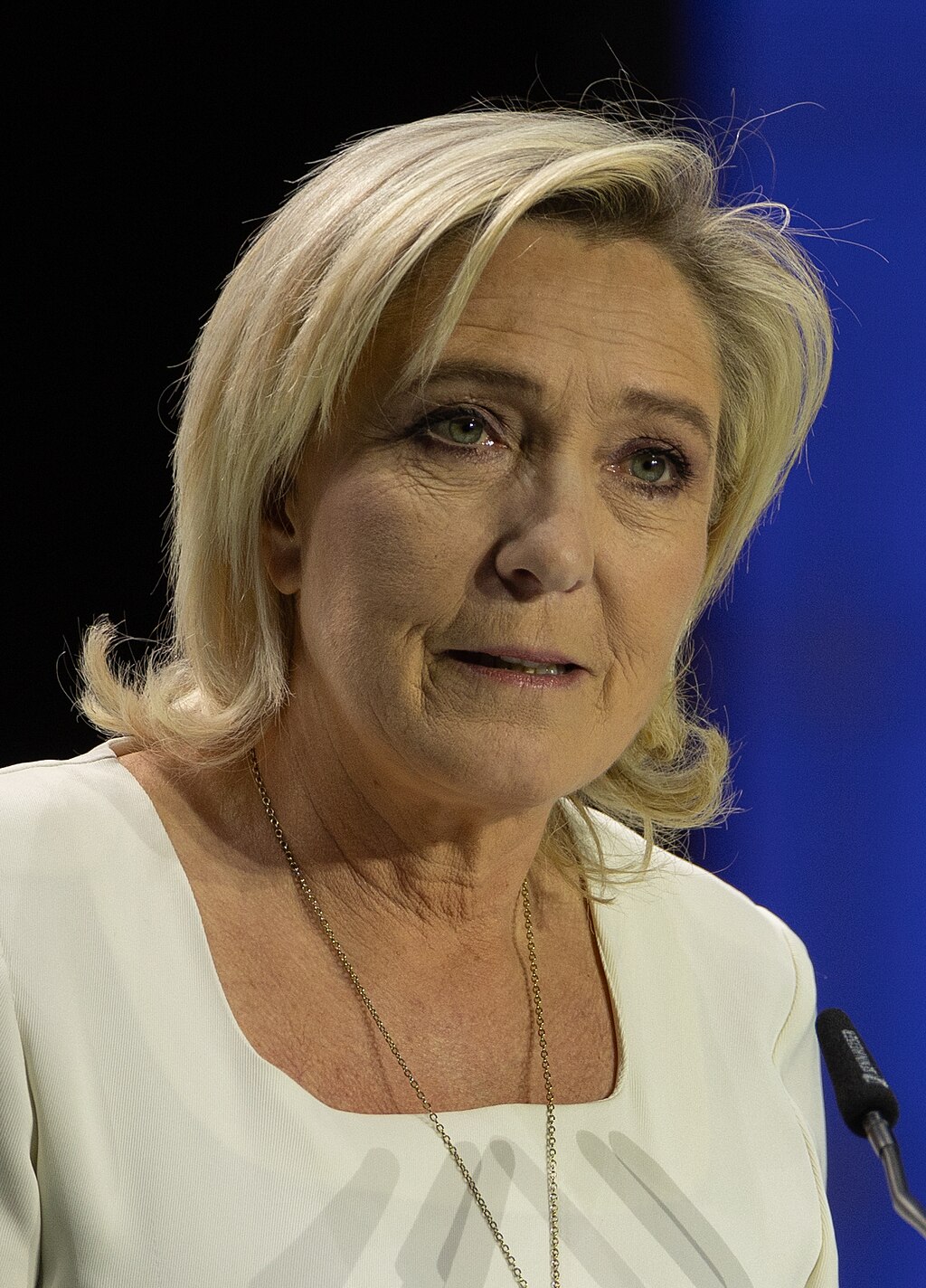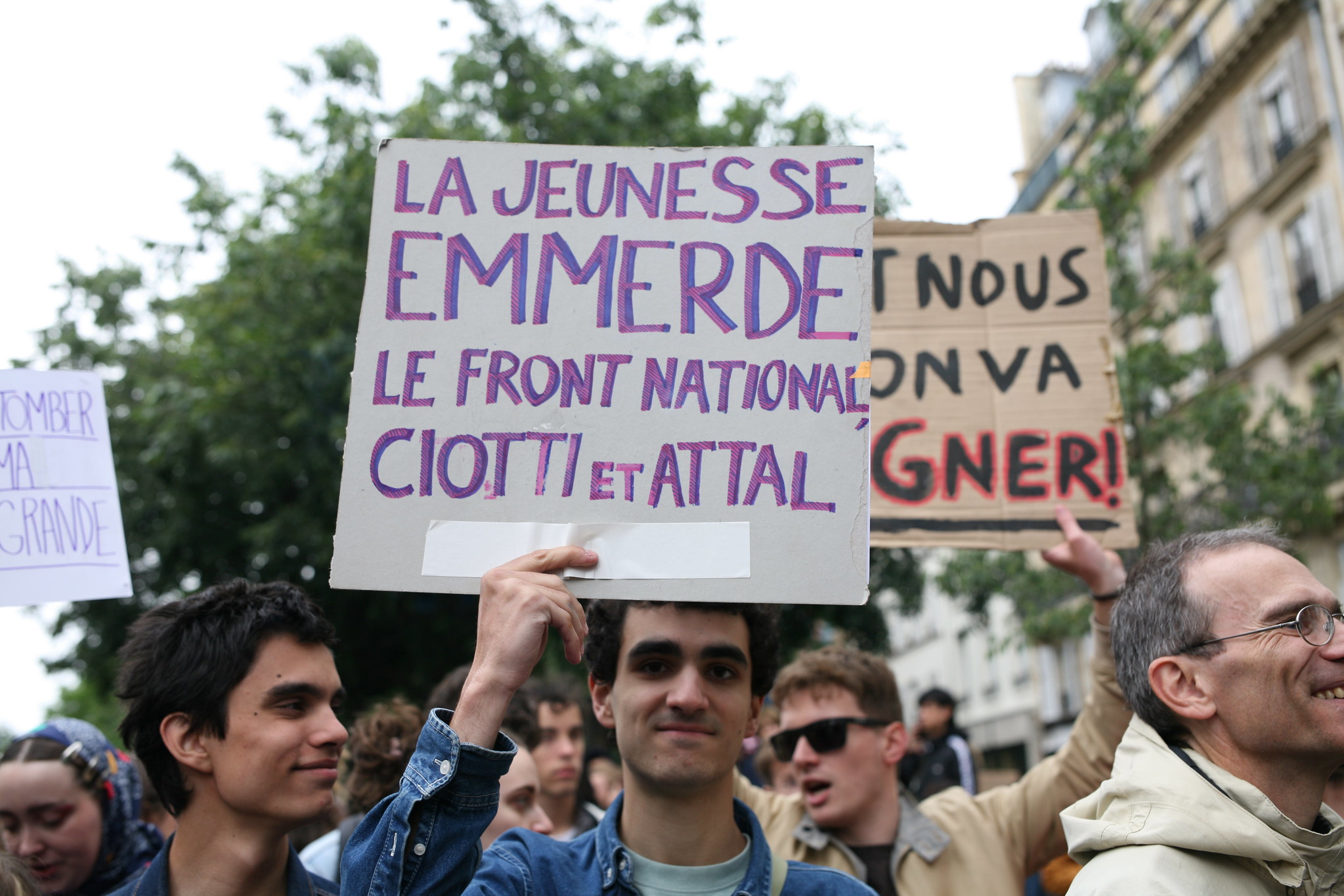- Opinion
- 11 Jul 24
How France Stepped Back From The Far-Right Ledge

On June 9, following the relative success of the French far-right party, the National Rally, in the elections to the European parliament, the President of France, Emmanuel Macron, surprised the nation by dissolving the French parliament, triggering a snap election. No one predicted the outcome correctly...
It’s been one of the most tumultuous periods in French politics in decades. Fears ran high when the National Rally/Rassemblement National (RN) hit historically high scores in the first round of the elections to the National Assembly. But as the results of Round Two poured in on Sunday night and Monday morning it became clear that the leftist coalition, the New Popular Front/Nouveau Front Populaire (NFP), had managed to take more seats than any of the other three main parties in the Assembly. Across much of Europe there were sighs of relief.
In a single month, France has seen its whole political landscape turned upside down so many times that it is getting hard to count.
It started with the dissolution of the National Assembly by President Emmanuel Macron. Four weeks of unlikely alliances, back stabbings, and historically high scores for the National Rally followed. There were times when the future of French politics looked grim.
On July 7, however, in the second and final round, the leftist coalition New Popular Front became the shock winner of the election, reaching a relative majority in the National Assembly with 180 seats out of 577.
To understand the significance of this moment, let us circle back to three pivotal events of the past month.
June 9, 2024
A month ago, a strange air of discomfort, laced for many with a sense of doom, was looming over France. The results from the EU elections were clear, and Marine Le Pen’s party, the National Rally, had scored more than 31% of the votes – six points above their previous best score in 2014.
Just a few hours later, as the country was absorbing the news, president Emmanuel Macron announced in an address to the nation that he was dissolving the National Assembly and calling a snap legislative election – a decision which has since been equated to a “political earthquake.”
In the French democratic system, parliamentary elections are normally held every five years. The next ones were due in 2027, a few months after the next Presidential election.
The 577 MPs in the Assembly are locally elected by universal suffrage, with a two-round majority system.
After the first round, the two leading candidates, as well as any additional candidate who collected votes equal to or more than 12.5% of the total electorate in the area (estimated as a probable 20% of the turnout), are allowed to advance to a second round of voting the following week. The candidate who obtains the most votes is then elected, in a winner-takes-all, first-past-the-post style.
Much like the Dáil in Ireland, the role of the National Assembly is to pass – or reject – laws.
By dissolving the National Assembly, Macron dismissed all MPs, meaning that their seats as well as the role of Prime Minister, were up for grabs. To say that the decision took the political world in France by surprise would be the understatement of the century: with Macron’s popularity plummeting over the past few years, and the historically high scores clocked up by the far right in the elections to the European Parliament, many estimated that the President of France was in the process of handing the assembly to Marine Le Pen.

Marine Le Pen
On June 10, another major turn of events shook the political world. It took just one day for the historically divided left to come together to negotiate a new electoral alliance under the banner of the Nouveau Front Populaire – a nod to the 1936 leftist alliance that rose against Nazism in France. For the first time since 1997, fifteen leftist organisations, including parties, unions and associations, had joined forces in advance of an election.
“It’s historical,” Elsa Aurange, journalist for Le Bulletin Quotidien explained, “because for years, the leftist parties have been ripping each other apart. They couldn’t agree on a lot of ideological stances, to the point where the ex-socialist prime minister Manuel Valls had spoken of an ‘irreconcilable left’.”
“There were two choices,” Hadrien Clouet, a sitting member of the National Assembly and the winning candidate for the leftist party La France Insoumise (LFI) in the Haute-Garonne county summarised. “Either we all went on our separate routes, and we organised the collective suicide of the left, or we acted intelligently by putting all of our similarities at the centre of the table, and put everything we could agree on in a shared programme.”
“Macron hadn’t planned on the fact that the left would unite so fast,” Aurange reflected. “That is precisely why he tried to call the snap elections so quickly. The left really managed to rise to the occasion.”
June 30, 2024
On the last day of June, the results of the first round dropped: 29.25% for the RN, 27.99% for the NFP, and only 20.04% for Ensemble, Macron’s party.
It felt like the RN party were very close to gaining access to a significant amount of power within French institutions. For those opposed to their new version of the fascism of the National Front, the battle for the soul of France was on, in earnest.
“A vote for the RN,” Aurange offered at the time, “is a protest vote. It’s not that the whole country is suddenly far right, it’s more that people are widely unhappy.
“The message that voters tried to send during the EU elections is that the current state of politics is failing. There’s a good chance that if they’re asked to give their opinion again, they’ll say the same thing, but even louder.”
The week between the two rounds was an occasion for all parties to take a stand: for, or against the far right. It was time for a ‘Republican front’ – no matter what, not one more ballot could go to the RN.
Quickly, new alliances formed: in constituencies where three candidates were heading to the second round (usually one from the RN, one from the NFP, and one from Ensemble), one of the the non-far right candidates stepped down so as not to divide the votes.
“It was a new atmosphere because the world was looking at us,” Hardien Clouet offered. “Usually, people look at Austria or Hungary in the way they were looking at France now. When you had the whole world asking you if your country is becoming like the far right Poland or Orban’s Hungary, it encouraged political mobilisation.”
Despite Clouet’s words hopes weren’t high. Indeed, it felt like the French political landscape had been transformed forever.
The belief that some kind of dark momentum was in their favour had emboldened the far-right. Over the next few weeks – doubtless egged on via social media and its culture of nastiness and aggression – there was a clear rise of street-level anti-immigrant violence, with nationalist supremacists taking to the streets and chanting “We’re nazis, putain!”, “Islam, out of Europe”, or “Blue, white, red, France to the French!”
July 7, 2024
At 8 o’clock, local time, as the last few ballots were being counted, France was hit by a new wave of surprise. Despite the polls – and the worst fear of liberals, bohemians and leftists – the far-right hadn’t come out on top. Far from it: the NFP had emerged as the ‘shock winner’ of the election, earning a relative majority of 180 seats, followed by 163 seats for Macron’s Ensemble, and only 143 seats for the RN.
“When we created the NFP,” Clouet reflects now, “we thought that it was the occasion to not only stop the RN from accessing power, but also to win against Macron.
“The way in which unions, and Planned Parenthood, were calling to vote for the NFP proves that we’d established a coalition that goes beyond the leftist institutions, and reached those who actually fight every day for people’s rights.”
Just a few hours after the results became clear, the country erupted into celebratory protests. In Paris, over 8,000 people gathered in the Place de la Republique, with a protestor telling France 24: “We thought we were going to be angry, but instead we’re overjoyed, so we’re shouting our relief. We’re hugging strangers.”

Protester with a sign saying: “Fuck off to the National Rally and Gabriel Attal.” Photo: Jeanne Menjoulet
Nothing is over yet, though – the left has not reached an absolute majority. They will now have to govern with the other two major blocks.
“With three major blocks,” Véronique Champeil-Desplats, public law professor at Université Paris Nanterre, explains, “the risk is that the Assembly won’t be able to legislate, and it would be difficult to control the government. But in truth, the country won’t be ‘ungovernable’, as we often hear. There’s already a lot of laws - it’ll just be harder to pass some new ones.”
It is important also to underline that the RN has never sent so many MPs to the assembly – in 2017, there were only seven, now there are 143.
A wave of hope has hit France – hope for a better future, where fascism will not take over its major institutions. How long this might hold up, however, remains to be seen.










